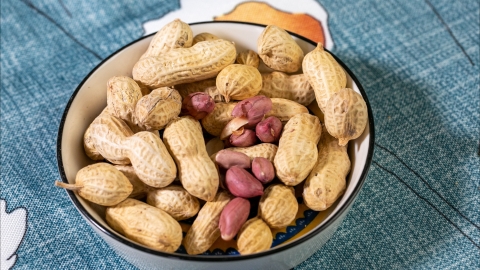Can patients with cirrhosis eat sunflower seeds or peanuts?
Generally, whether patients with liver cirrhosis can eat sunflower seeds or peanuts should be determined based on their specific medical condition. If discomfort occurs, it is recommended to seek timely medical advice and consult a professional doctor or dietitian. The detailed analysis is as follows:

If the patient's liver cirrhosis is in a stable phase, without complications such as hepatic encephalopathy or esophageal-gastric varices, and if digestive function remains normal, small amounts of sunflower seeds or peanuts may be consumed. Sunflower seeds and peanuts contain unsaturated fatty acids, protein, and various trace elements that help supplement nutrition. However, plain varieties without excessive additives should be chosen, thoroughly chewed to avoid increasing digestive burden, and intake should be limited to no more than a small handful per serving.
For patients with severe conditions—such as those experiencing hepatic encephalopathy, esophageal-gastric varices, severe liver dysfunction, or digestive disorders—it is not advisable to consume sunflower seeds or peanuts. These foods are high in fat, which increases the metabolic burden on the liver. Their hard texture may cause injury to varicose veins if not adequately chewed, potentially leading to bleeding. Additionally, improper protein intake may negatively affect the management of hepatic encephalopathy.
Prior to consumption, ensure the nuts are free from mold to avoid exposure to harmful substances. It is preferable to choose soft preparation methods such as boiling or stewing, or grind them into powder and mix into porridge or other soft foods. Avoid fried, salt-baked, or heavily processed versions to reduce intake of oil and sodium. After eating, monitor for any physical reactions; if symptoms such as bloating, abdominal pain, or altered consciousness occur, stop consumption immediately and seek medical attention. Frequency of consumption should be strictly controlled, and these foods should not be eaten frequently.




